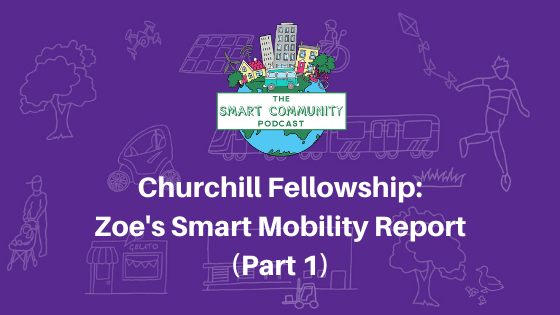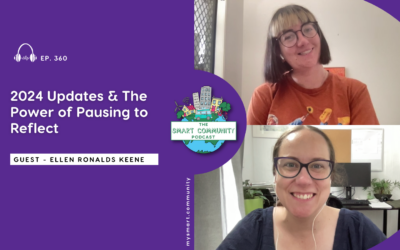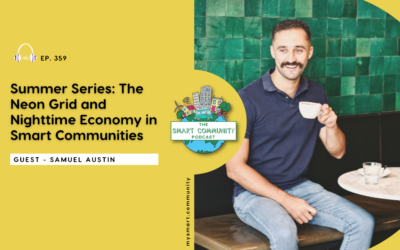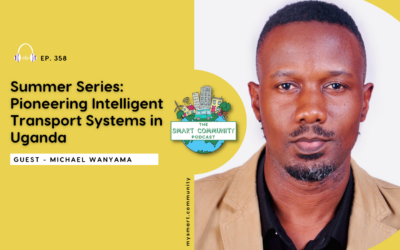In this episode I share with you the overview of my findings from my Winston Churchill Fellowship, which I undertook earlier in 2019 by visiting 7 countries around the world to investigate the integration of Smart Mobility to enable more liveable Australian communities. This will be the first in a series of episodes about my findings. There’s so much to say so today is just the overview and I’ll be back diving a little deeper into some of the topics in another episode soon. If you can’t wait for that, then you can of course read my whole report, which you can find via the link in the show notes and the description of this episode.
Also, just a little update for you all – as you may know if you’ve been following us on the socials, My Smart Community has had a beautiful visual rebrand in the last month. We’ve got a new website that now combines my consulting work, which I used to do under the name Zemcon, with the podcast and the other things on offer at My Smart Community. So, the podcast url hasn’t changed – you can still find us there at mysmart.community but our social media handles have. We are now @SmartCommHQ – that’s Comm with 2 Ms. It’s been an exciting year of growth here at SmartCommHQ with a bigger team and more ways to engage in our Smart Communities. I can’t wait to see what 2020 has in store!
In the meantime, enjoy this episode about my findings from my Winston Churchill Fellowship, and as always, we hope you enjoyed listening to this episode as much as we enjoyed making it!
Listen here:
What we cover in this episode:
- What Smart Mobility actually is
- Why Zoe cares about the concept so much
- A bit about Zoe’s Churchill Fellowship research project
- The common Mobility problems around the world: congestion, pollution, population growth, connectivity, inefficiencies in public transport and the WTF
- The importance of baseline data
- The seven things we aren’t talking about enough
Quotes:
“I realised that [Smart is] actually a way of thinking, a framework of not doing things the way we’ve always done them. It’s not only about the city, but it has to be about regional, rural and remote areas. And I actually think even more so because people in those areas and the areas themselves could really benefit from this quite significantly.”
“At the time of applying [for a Churchill Fellowship], I thought I would research the sexy, shiny stuff like autonomous vehicles, flying taxis, etc. But I realized what I’m actually passionate about is shifting the conversation from one led by technology to one that is about an integrated network that makes communities thrive. One that is about public good, which is enabled by mobility.”
“Around the world, we’re all suffering from this common thread of problems in mobility. What people spoke about the most was congestion, pollution, population growth, connectivity for all, inefficiencies in public transport, and what I like to call the WTF.”
“One of the number one things people are talking about [is that] there are too many people going to the same place at the same time. Now it’s not the same kind of congestion in each place, but the single occupancy vehicle always has a part to play.”
“What I think is missing from the Smart Mobility conversation is the messy bit in the middle between the technology and the business as usual of a community, a city, town or region, the places that we work, live and play, and the real needs of the community.”
Links:
Read more about Zoe’s Churchill fellowship here
Download Zoe’s Churchill Fellowship report here
Connect:
Find the full show notes at: www.mysmart.community
Connect with me via email: hello@mysmart.community
Connect with My Smart Community via LinkedIn or Twitter and watch on YouTube
Podcast Production by Perk Digital






0 Comments